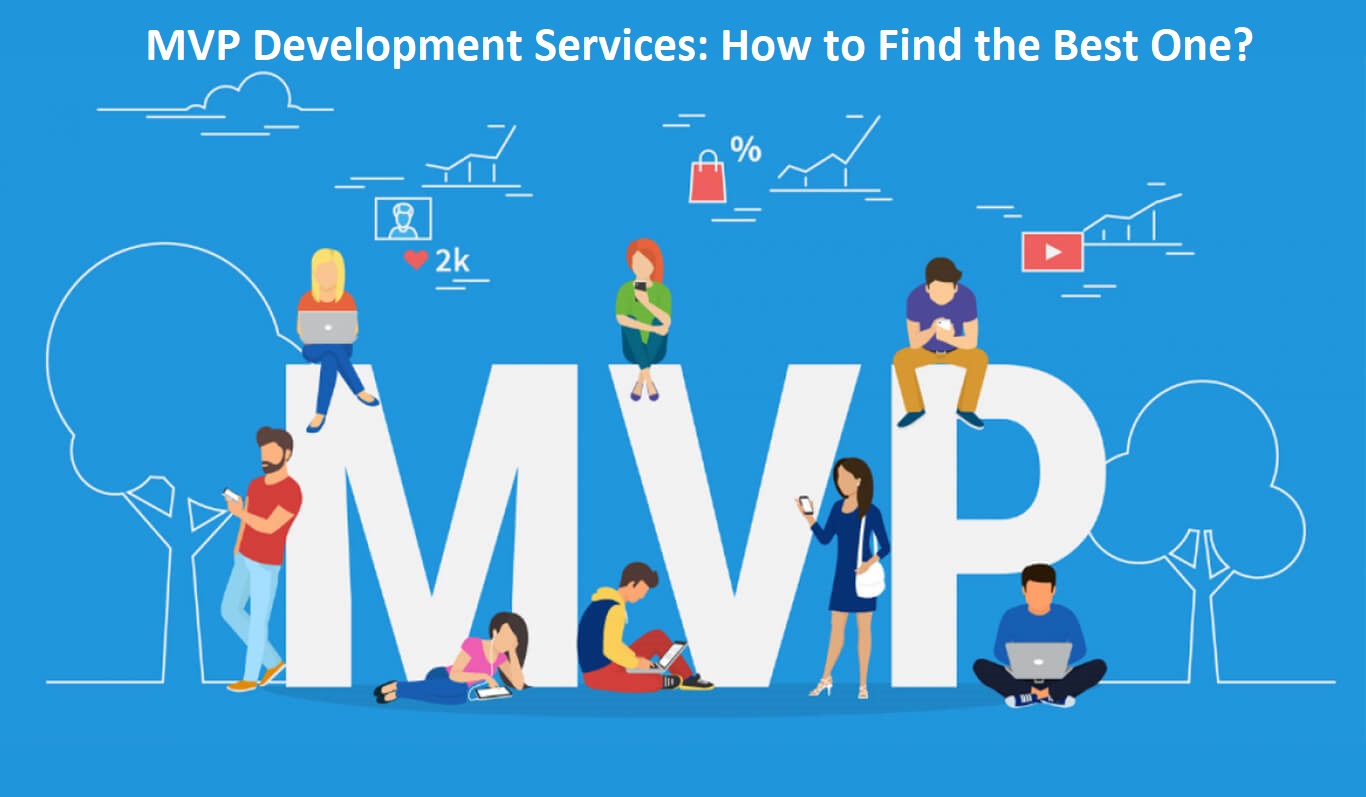MVP Development Services: How to Find the Best One?

Strong 8k brings an ultra-HD IPTV experience to your living room and your pocket.
Entrepreneurs and businesses are constantly seeking efficient and cost-effective ways to bring their innovative ideas to life. The concept of Minimum Viable Product (MVP) has emerged lately. It allows companies to test their product hypothesis with minimal resources before making a full-fledged commitment.
As the demand for MVP development services rises, pondering over the countless options to find the best provider becomes crucial.
In this blog, we will explore the key factors to consider when searching for MVP development services, to help you make informed decisions. Thus, making the processes from ideation to market-ready product successful.
Building an MVP Alone vs. Hiring a Development Service
The choice between solo development and hiring a specialized team depends on a multitude of factors, ranging from technical proficiency and time constraints to budget considerations and the complexity of the project.
Building an MVP alone can be a rewarding endeavor, offering complete control and a deep understanding of every line of code. However, it comes with its set of challenges. This includes the potential for prolonged development timelines, the need for comprehensive technical skills, and the risk of overlooking critical aspects of product development.
On the other hand, opting for a development service brings the advantage of utilizing the collective expertise of a skilled team, accelerating the development process, and ensuring a more well-rounded product.
Also, it enables the founder to focus on strategic aspects like market research and business development.
What Are the Elements of a Good MVP Development Service?
A successful Minimum Viable Product (MVP) development service should encompass five key elements to ensure the efficient and effective creation of a product that resonates with the target audience and meets business objectives.
1. Strategic Planning
A reputable MVP development service begins with a comprehensive strategic planning phase. This involves understanding the client's business goals, target audience, and market dynamics.
Moreover, a well-defined roadmap is crucial, outlining the features to be included in the MVP, the technology stack to be utilized, and a timeline for development.
2. User-Centric Design
An MVP's success is based on its user experience (UX) and design. A good development service prioritizes user-centric design principles, ensuring that the product is not only functional but also intuitive and appealing to the end user.
Additionally, conducting user research, creating personas, and incorporating feedback loops are integral to crafting a design that aligns with user preferences and behaviors.
3. Agile Development Methodology
Reliable MVP app development services employ agile practices, allowing for iterative and flexible development. This approach enables the incorporation of user feedback throughout the process, making it easier to adapt to changing requirements and ensuring a faster time-to-market.
4. Technical Expertise
Competent MVP software development services boast a team of skilled and experienced professionals proficient in the chosen technology stack. Technical expertise is crucial for building a robust and scalable product.
Besides, from frontend and backend development to database management and infrastructure, a well-rounded team ensures that the technical aspects of the MVP are not just functional but also optimized for future growth.
5. Quality Assurance and Testing
Rigorous testing procedures, including functional testing, usability testing, and performance testing, are essential to identify and rectify any issues before the product reaches the market.
A commitment to delivering a high-quality, bug-free MVP demonstrates the development service's dedication to client satisfaction and long-term success.
How an MVP Service Agency Should Build Your MVP?
Building a Minimum Viable Product (MVP) is a delicate and strategic process that requires a well-thought-out approach from an MVP service agency. Here's a step-by-step guide on how a competent agency should undertake the development of your MVP:
1. Discovery and Planning
The first phase involves in-depth discussions and collaboration between the agency and the client. The agency should aim to understand the client's business goals, target audience, and the unique value proposition of the product.
Furthermore, this phase often includes market research, competitor analysis, and the identification of key features for the MVP. The result is a comprehensive project roadmap and a clear plan for the MVP's development.
2. Prototyping and Design
Once the planning phase is complete, the agency should move on to creating prototypes and designing the user interface. This involves wireframing and creating mockups to visualize the structure and flow of the product.
Thus, user experience (UX) design is a critical component, ensuring that the MVP is not only functional but also intuitive and enjoyable for the end users.
3. Agile Development
A reputable MVP service agency adopts an agile development methodology to promote flexibility, collaboration, and adaptability. The development process is broken down into iterative cycles, or sprints, allowing for continuous feedback and adjustments.
So, this approach ensures that the MVP can evolve based on real-time user input and changing market conditions.
4. Iterative Testing and Feedback
Testing is an ongoing process throughout the development cycle. Each iteration of the MVP undergoes thorough quality assurance and testing, including functionality testing, usability testing, and performance testing.
Besides, user feedback is actively sought and incorporated, allowing the agency to make improvements and refinements to the MVP in real time.
5. Scalability and Futureproofing
A forward-thinking MVP service agency considers the scalability of the product. While the MVP is designed to be a lean version of the final product, it should be built on a scalable architecture that can accommodate future features and growth.
Thus, this futureproofing ensures that the MVP serves as a solid foundation for the product's evolution.
6. Deployment and Monitoring
Upon successful testing and refinement, the MVP is deployed for public use. The agency should closely monitor the initial user interactions and gather analytics data to understand user behavior.
Also, this data is valuable for making data-driven decisions in subsequent development phases.
7. Continuous Improvement
The release of the MVP is not the end of the development cycle. A reliable agency is committed to continuous improvement.
Based on user feedback, analytics, and changing market dynamics, the agency should collaborate with the client to plan and implement updates and additional features. Thus, ensuring the product remains competitive and aligned with user expectations.
What Tech-Stack Should an MVP Development Service Have?
The tech stack chosen should align with the specific requirements of the project and contribute to the efficiency, scalability, and robustness of the developed Minimum Viable Product (MVP).
Here are three key considerations for the tech stack:
1. Flexibility and Adaptability
Since the purpose of an MVP is to quickly test the viability of a product, the chosen technologies should allow for rapid development and easy iteration. Frameworks and programming languages known for their agility, such as Node.js, Python, or Ruby on Rails, are often preferred.
Additionally, a microservices architecture can enhance flexibility by enabling the independent development and deployment of individual components.
2. Scalability and Performance
Scalability is a critical factor in MVP development, especially if the product gains traction and user numbers increase rapidly. The chosen tech stack should be capable of handling growth.
Cloud-based solutions, like AWS, Azure, or Google Cloud Platform, provide scalable infrastructure. Databases such as MongoDB or PostgreSQL are known for their scalability, allowing the application to handle increased data loads.
3. Security and Reliability
Security is paramount in software development, and an MVP is no exception. The chosen tech stack should include tools and practices that prioritize data security and user privacy.
Robust authentication and authorization mechanisms, secure communication protocols (HTTPS), and regular security audits are essential.
Moreover, the use of reliable databases, caching mechanisms, and error-monitoring tools enhances the overall reliability of the MVP. Technologies such as Docker for containerization and Kubernetes for orchestration can contribute to both security and reliability by providing consistent and scalable deployment environments.
How to Choose a Reliable MVP Software Development Company
Choosing a reliable MVP software development company is a crucial step in ensuring the success of your project. Here are key factors to consider when making this important decision:
- Experience and Expertise
- Client Reviews and References
- Agile Development Methodology
- Transparent Communication
- Tech Stack and Development Tools
- Scalability and Future Collaboration
- Cost Transparency
- Quality Assurance and Testing
- Intellectual Property and Security
- Post-Launch Support and Maintenance
Final Words
Choosing the right MVP development services is a pivotal decision, requiring careful evaluation of factors such as strategic planning, user-centric design, agile methodologies, technical expertise, and rigorous quality assurance.
A competent service agency should not only guide clients through the development process but also set the stage for long-term success by prioritizing scalability, adaptability, and continuous improvement.
The process of MVP development is multifaceted, and success depends on a combination of strategic planning, technical expertise, user-centric design, and effective collaboration with a reliable development partner.
By carefully considering the insights discussed, entrepreneurs and businesses can understand the details of MVP development and pave the way for the successful launch of innovative and impactful digital products.
Note: IndiBlogHub features both user-submitted and editorial content. We do not verify third-party contributions. Read our Disclaimer and Privacy Policyfor details.


